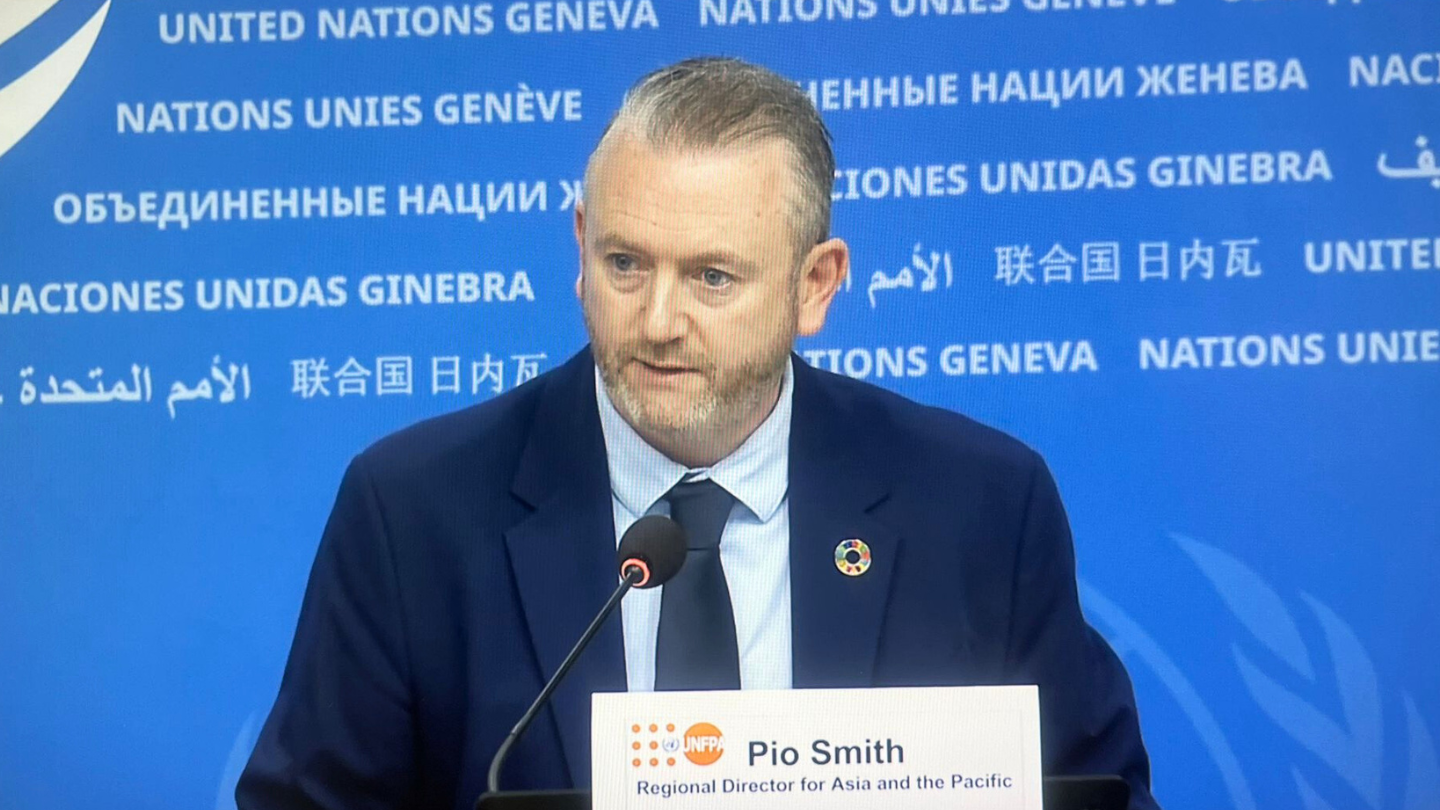Good morning. Thank you for joining us.
UNFPA, the United Nations sexual and reproductive health agency, works with partners in over 150 countries to prevent maternal deaths, end gender-based violence, and ensure access to family planning.
We are proud to have the support of more than 100 Member States, along with actors from the private sector, philanthropy, and individuals who recognize the importance of this work for all of humanity.
But this lifesaving work is now in jeopardy.
On 24 January, the US administration paused nearly all US foreign aid programmes pending a 90-day review.
In response, UNFPA has suspended services funded by US grants that provide a lifeline for women and girls in crises, including in South Asia.
As UNFPA’s Regional Director for Asia and the Pacific, I am deeply concerned that millions of women and girls now face life-threatening risks, due to the lack of access to UNFPA’s crucial services across Afghanistan, Bangladesh and Pakistan.
In Afghanistan, over 9 million people will lose access to health and protection services, with nearly 600 mobile health teams, family health houses, and counselling centers suspended.
Every two hours, a mother dies from preventable pregnancy complications, making Afghanistan one of the deadliest countries in the world for women to give birth.
Without UNFPA’s support, even more lives will be lost at a time when the rights of Afghan women and girls are already being torn to pieces.
In Pakistan, 1.7 million people, including 1.2 million Afghan refugees, will be cut off from lifesaving sexual and reproductive health services with the closure of over 60 health facilities.
In Bangladesh, nearly 600,000 people, including Rohingya refugees, face losing access to critical maternal and reproductive health services.
This is not about statistics. This is about real lives. These are literally the world’s most vulnerable people.
I have seen firsthand the life-saving difference UNFPA makes.
Despite restrictions, last year, UNFPA supported over 13 million people in Afghanistan through hundreds of women-led facilities.
In Cox’s Bazar, where over 1 million Rohingya refugees remain trapped in dire conditions - with UNFPA’s support, nearly half of all births now take place in health facilities.
This progress is now at risk, but UNFPA is committed to finding common ground with all Member States, including the US, to protect women and girls from violence and save lives. We remain extremely grateful to our donors who sustain our lifesaving work. The humanitarian needs across the region, however, remain immense.
UNFPA requires over $308 million dollars this year to sustain essential services in Afghanistan, Bangladesh and Pakistan.
What happens when our work is not funded?
Women give birth alone, in unsanitary conditions. The risk of obstetric fistula is heightened.
Newborns die from preventable causes.
Survivors of gender-based violence have nowhere to turn for medical or psychological support.
We hope that the US Government will retain its position as a global leader in development and continue to work with UNFPA to alleviate the suffering of women and their families as a result of catastrophes they did not cause.
As committed humanitarians, we will continue to work diligently with our partners and with the communities we serve to uphold the safety, dignity – and hope – of every woman and girl, no matter what.
Because while political winds and funding decisions may change, our vital mission at UNFPA does not.



